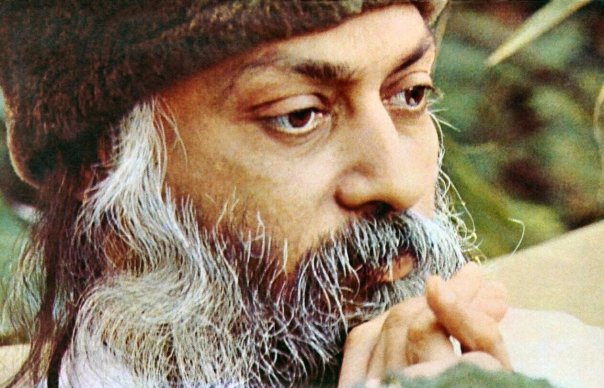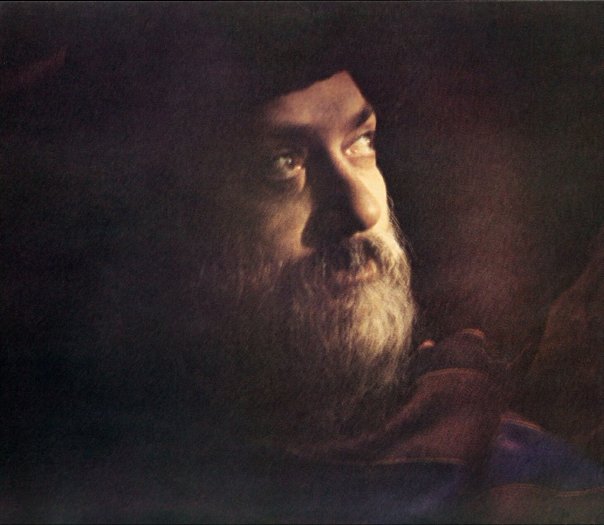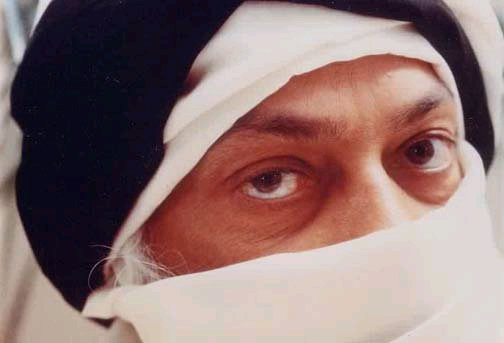Osho Quotes on Old Age
- This is the whole art of life! You enjoy your youth, and when you become old you enjoy your old age. Old age has its own beauties; no young man can have those beauties. Youth is shallow; full of energy but shallow. Old age is not so full of energy, but things are settling and depth is arising. If you miss your youth, you will miss your old age also — remember. So I am not saying become old while you are young. I am saying be whatsoever you are; let that moment be your totality. When a child, be a child; never enforce your wisdom on any child because that is a crippling thing. Don’t try to make a child old before he is old, don’t crush him.
- Identifying yourself with the body, you become the body. Then you are a mortal. Then there is fear of death. Non-identifying with the body, you are just a watcher, you are just a pure consciousness, a no-mind. And there is no death and there is no disease and there is no old age. As far as your witnessing is concerned, it is eternal and it is always fresh and young and the same. The authentic religion does not teach you to worship. The authentic religion teaches you to discover your immortality, to discover the god within you.
- The child is innocent, that is his core. The youth is overflowing with energy, that is his core. And the old man has seen all, lived all, known all; wisdom has arisen, that is his core. But his wisdom contains something of his youth; it is also overflowing, it is radiant, it is vibrant, it is pulsating, it is alive. And it also has something of the child; it is innocent. If the old man is not young also, then he has only aged, he is not old. He has grown in time, in age, but he is not grown-up. He has missed. If the old man is not innocent like the child, if his eyes don’t show that crystal clarity of innocence, then he has not yet lived.
- Just becoming old does not mean that you have become a wise man. Age in itself does not make anybody wise. One may grow old; that does not mean that one has become a grown-up. Growing old and becoming grown-up are totally different phenomena.
- People go on growing in age but not in maturity. They don’t become really ripe; they remain as childish as anybody else. And when you are a child and are childish it is not so embarrassing, but when you have become old and you are childish it is very embarrassing. They hide it, but deep down they are the same person, nothing has happened — because nothing ever happens without meditation. Just accumulating experience of the outside world does not transform you. It makes you very well informed about many things, but information is information, it is not transformation.
- The old man knows that those childish desires were really childish. The old man knows that all those days of youth and turmoil are gone. The old man is in the same state as when the storm has gone and silence prevails. That silence can be of tremendous beauty, depth, richness. If the old man is really mature, which is very rarely the case, then he will be beautiful. But people only grow in age, they don’t grow up. Hence the problem. Grow up, become more mature, become more alert and aware. And old age is the last opportunity given to you: before death comes, prepare. And how does one prepare for death? By becoming more meditative.
- Maturity has nothing to do with age; growing old is not necessarily growing up. One can be young and grown-up and one can be very old and very childish. Age and maturity have no necessary link. Maturity comes through meditation. Aging is an ordinary process; everybody ages. Animals age, trees age, people age; that has nothing to do with transformation.
- One has to become old, and when you are becoming old reluctantly, old age becomes ugly. When you are becoming old joyously, old age has a beauty of its own, a grandeur of its own, a ripeness, a maturity, a centering. Young people have nothing compared to the experienced, who have lived life and who know it is all just a game. The moment a person comes to the point where the whole life is just a game, his old age is so beautiful, so graceful; no young person can be compared to it. His white hairs will look like white snow — just on the highest peak of the mountains. He will die with joy. He has lived his life, now he is entering into a new phase — death. He will not be reluctant. If he was not reluctant for old age, he will not be reluctant for death. If he accepted old age joyously, he will accept death also dancingly. He will go with death dancing. If a man can go joyously with death, there is no death for him, he enters into eternal life. Then there is no birth, no death. He has gone beyond the circle of birth and death.
- Rejoicing in your body, in its health, in its youth, in its old age, rejoicing in your body even in death, is what I teach.
- In India we have not depicted Buddha, Mahavir, or Krishna as old men. It is not that they never became old; they became old, but we have not depicted that. Not even a single image of Buddha exists which shows him old. Not that he never became old; he became old, but we know that he never became ‘old’. Deep down, he remained always fresh, unpredictable, young, infinitely young. Even on the last day, in the last moments of his life he was young and fresh. Whatsoever he said, the last words that he uttered, they too were as fresh as ever; no old age, no repetition.
- Only a meditator becomes adult. Otherwise, your chronological age may be seventy, eighty or ninety, it does not matter — you are only an old child… ninety years old but still immature because still interested in toys, still carrying your teddy bears, still interested in possessing more and more toys. Children can be forgiven, but you cannot be forgiven. Only a meditator comes of age; for the first time he becomes mature, grown-up. All childishness disappears from him. And the beauty is, when all childishness disappears from you, you again become childlike but on a different plane. No childishness but absolutely childlike — the same purity, the same innocence, the same wonder, the same awe. Again existence becomes a mystery. But it is not that you are childish — you are childlike. It is a totally different phenomenon. Childishness is immaturity; to have a childlike purity is maturity. They are polar opposites.
- My work here consists of teaching you how to live and how to die, how to be joyous and how to be sad, how to enjoy your youth and how to enjoy your old age, how to enjoy your health and how to enjoy your illness. If I teach you only how to enjoy your health, your joy, your life, and the other part is neglected, then I am teaching you something which is going to create a division in you, a split in you. I teach you the totality of existence. Don’t possess, don’t hold anything, don’t cling. Let things come and pass. Allow things to pass through you, and you remain always vulnerable, available. And then there is great beauty, great grace, great ecstasy. Your sadness will also bring a depth to you, as much as your joy. Your death will bring great gifts to you, as many as life itself. Then a man knows that this whole existence is his: nights and days, summers and winters, all are yours.
- By the time a person becomes old he becomes very cunning — not wise, not intelligent. Remember: if you were stupid when you were a child you will be more stupid when you are old. You will have a long, long-rooted stupidity in you with great foliage and flowers and fruits. Whatsoever you have will grow with your age. If you meditate then meditation will grow. But just by becoming old you cannot be wise.
- Even at the age of ninety, people want to continue to play the old, childish games. Children can be forgiven. They need to play, they need to get identified, they need to go astray, they need to commit errors, mistakes, because that is the only way to learn and to mature. But even in old age, people behave as if they have not grown up at all. Remember, you grow only in the proportion that you become aware. You grow only in the proportion that you become unidentified with all the games that life makes available for you.
- If you can die without desires, then there is no longer any birth. When there is no birth there is no old age, no death. And when there is no birth there is no time. You go beyond time. You live in eternity, you become divine. That’s what Buddha means by godliness — BHAGAVATA.
- If you are a mirror you cannot carry the past with you, and if you don’t carry the past you will remain fresh, you will remain young, you will remain in a continuous process of birth. Each moment you will be born anew. We become old… I am not talking about physiological age, I am talking about psychological age. We become very old for the simple reason that we collect the past.
- All old people are not wise. Wisdom has nothing to do with old age. A real man of understanding can become wise any time. Even as a child he can become wise. If you have a penetrating understanding, even a single experience of anger and you will be finished with it. It is so ugly. A single experience of greed and you will be finished with it. It is so poisonous.
-
If you go on repressing, then it will become uglier and uglier. And in old age all your repressions become very strong — because you become weak and your repressions take revenge. I am not saying to repress. I am saying understand. Only if understanding can help, then it is good. And understanding helps.
- Whatsoever you see in life is your interpretation. To me, the word ‘ordinary’ is tremendously significant. If you listen to me, if you hear me, if you understand me, you would like just to be ordinary. And, to be ordinary there is no need to struggle for it. It is already there. Then all struggle disappears, all conflict. You simply start enjoying life as it comes, as it unfolds. You enjoy the childhood, you enjoy the youth, you enjoy your old age — you enjoy your life and you also enjoy your death. You enjoy all the seasons round the year — and each season has its own beauty, and each season has something to give to you, some ecstasy of its own.




I really appreciate this quote. I enjoy while I was reading these quotes on old age.
DearSir, A very nice article, it must be read over by each and every person in his/her sixtees. I my self am geetting a great inspiration. Thanks .
beauty of life………can’t explain